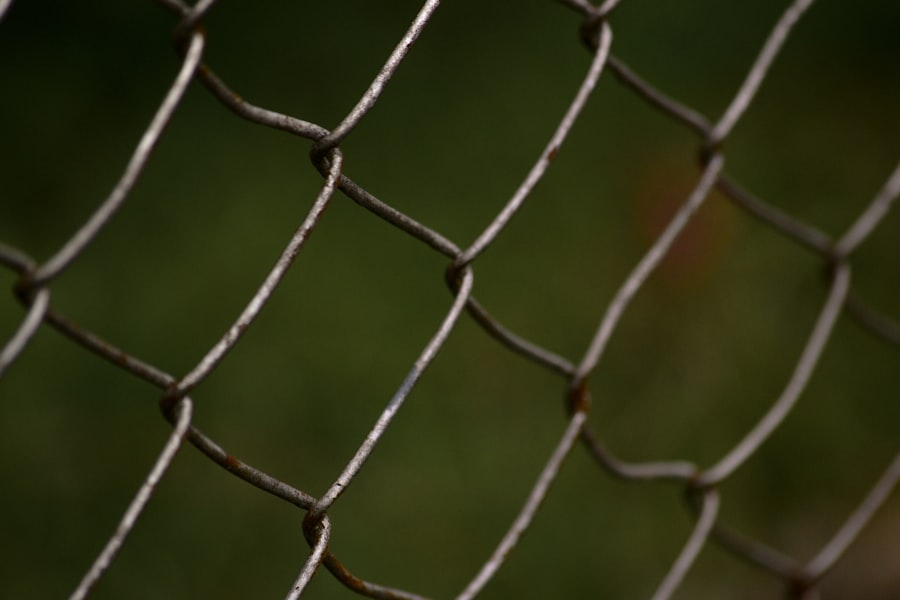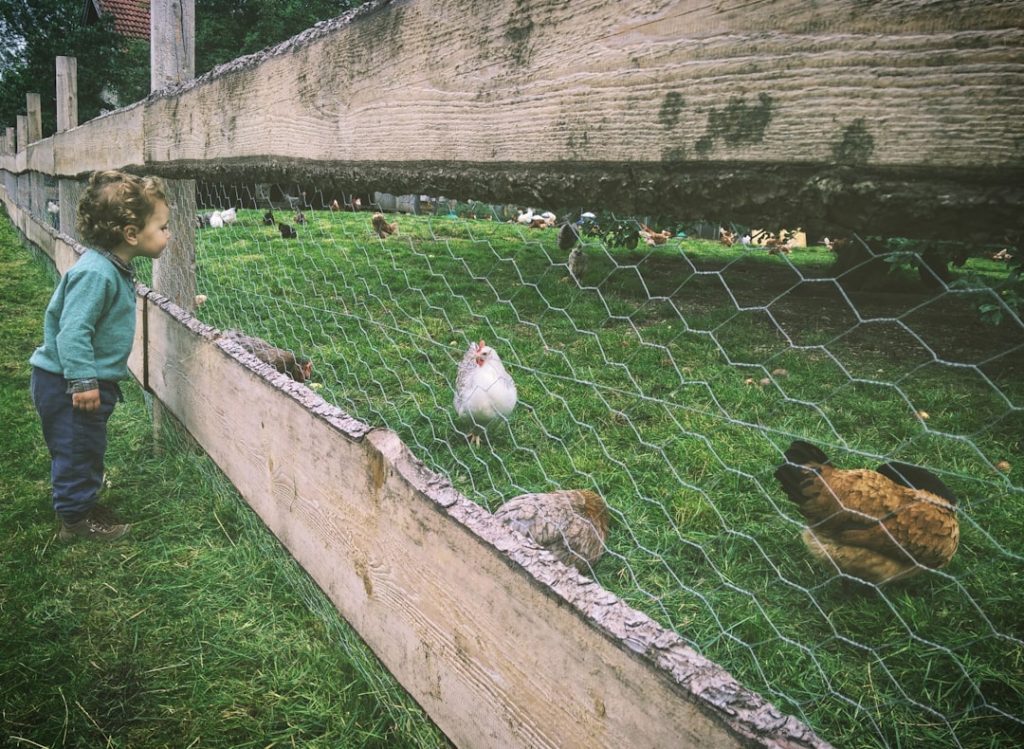Chickens are social creatures with a complex flock structure. They possess innate behaviors such as foraging, dust bathing, and roosting. Comprehending these behaviors is essential for providing proper care and living conditions.
Within a flock, chickens establish a hierarchical system known as the pecking order through various interactions. Adequate space and resources are crucial to prevent aggression and bullying among flock members. As prey animals, chickens are naturally wary and easily startled.
Recognizing this characteristic helps in creating a secure and comfortable environment. Chickens communicate through various vocalizations, including clucking and squawking, as well as body language. Interpreting these signals can aid in identifying potential health issues or stress within the flock.
Chickens have a strong instinct to explore and forage for food. Providing opportunities for these natural behaviors is vital for their well-being. Understanding chicken behavior is fundamental to ensuring appropriate care and overall welfare for these birds.
Table of Contents
Key Takeaways
- Chickens have complex social structures and natural behaviors that should be understood and respected by their caretakers.
- Providing adequate space, perches, and enrichment items such as dust baths and toys is essential for the well-being of chickens.
- Effective fencing and barriers, including predator-proofing measures, are crucial for keeping chickens safe and secure.
- Using deterrents like motion-activated lights and distractions such as hanging CDs can help deter predators and keep chickens safe.
- Managing feeding and foraging areas can help prevent competition and aggression among chickens. Regular maintenance and supervision are necessary to ensure the safety and well-being of the flock.
- Seeking professional advice and support from experienced chicken keepers or veterinarians can provide valuable guidance for maintaining a healthy and happy flock.
Providing appropriate space and enrichment
The Importance of Space
Providing ample space both indoors and outdoors allows chickens to exhibit natural behaviors such as foraging, dust bathing, and roosting. This freedom of movement is essential for their overall health and happiness.
Enrichment for Mental Stimulation
Enrichment is also crucial for keeping chickens mentally stimulated and preventing boredom. This can include providing them with objects to peck at, perches to roost on, and even access to different areas of the outdoor space. Enrichment activities can help reduce stress and aggression within the flock, as well as prevent destructive behaviors such as feather pecking.
A Varied Diet and Fresh Water
Additionally, providing a varied diet and access to fresh water is also a form of enrichment for chickens. Overall, providing appropriate space and enrichment for chickens is essential for their overall well-being and can help prevent behavioral issues within the flock.
Implementing effective fencing and barriers

Implementing effective fencing and barriers is crucial in keeping chickens safe and secure within their living environment. Chickens are natural foragers and can be prone to wandering off if not properly contained. Additionally, they are also vulnerable to predators such as foxes, raccoons, and birds of prey.
Therefore, having secure fencing and barriers in place is essential for their safety. When it comes to fencing, it’s important to choose materials that are sturdy and tall enough to prevent chickens from flying over or predators from digging under. Additionally, adding a wire mesh skirt at the base of the fence can further prevent predators from gaining access to the coop.
Barriers such as netting or covers can also be used to protect chickens from aerial predators. Regular maintenance of fencing and barriers is also important to ensure that there are no weak spots or areas of damage that could compromise the safety of the flock. Overall, implementing effective fencing and barriers is essential in keeping chickens safe from potential threats.
Using deterrents and distractions
Using deterrents and distractions can be an effective way to prevent unwanted behavior in chickens and protect them from potential threats. Predators such as foxes, raccoons, and birds of prey can pose a danger to chickens, so using deterrents such as motion-activated lights or sound devices can help keep them at bay. Additionally, using physical barriers such as predator-proof fencing can also deter predators from gaining access to the coop.
Distractions can also be used to prevent destructive behaviors within the flock, such as feather pecking or aggression. Providing objects for chickens to peck at or dust bathing areas can help redirect their energy towards more positive behaviors. Additionally, providing access to different areas of the outdoor space can also provide distractions for chickens and prevent boredom.
Overall, using deterrents and distractions can be an effective way to protect chickens from potential threats and prevent unwanted behaviors within the flock.
Managing feeding and foraging areas
Managing feeding and foraging areas is essential in ensuring that chickens have access to a varied diet and opportunities to exhibit natural behaviors. Providing multiple feeding stations can help prevent competition and aggression within the flock. Additionally, ensuring that feeders are kept clean and free from mold or pests is important for the health of the chickens.
Foraging areas should also be managed to provide chickens with opportunities to engage in natural behaviors such as scratching and pecking for insects. Rotating foraging areas can help prevent overgrazing and allow the land to recover. Additionally, providing access to different types of vegetation can also provide enrichment for chickens and contribute to a varied diet.
Overall, managing feeding and foraging areas is essential in providing chickens with a balanced diet and opportunities to engage in natural behaviors.
Regular maintenance and supervision

Coop Maintenance
Coops should be regularly cleaned and inspected for any signs of damage or wear. This includes checking for loose wires, damaged fencing, or areas where predators could potentially gain access.
Flock Supervision
Supervision of the flock is also important in identifying any potential issues such as illness or aggression. Spending time observing the flock can help in recognizing any changes in behavior or signs of distress.
Health Checks
Regular health checks should also be conducted to ensure that all chickens are in good condition. This includes checking for any signs of illness or injury, and taking prompt action if any issues are detected.
Overall, regular maintenance and supervision are essential in providing a safe and healthy environment for chickens.
Seeking professional advice and support
Seeking professional advice and support can be beneficial in ensuring the overall welfare of chickens. Veterinarians with experience in poultry care can provide guidance on health management, disease prevention, and treatment options. Additionally, seeking advice from experienced poultry keepers or joining local poultry groups can provide valuable insights and support.
Professional support can also be beneficial when it comes to implementing effective predator control measures or making improvements to the living environment for chickens. Consulting with professionals can help in identifying potential risks and finding appropriate solutions. Overall, seeking professional advice and support can be valuable in ensuring the well-being of chickens and addressing any challenges that may arise in their care.
In conclusion, understanding chicken behavior is crucial in providing appropriate care for them. Providing adequate space and enrichment is essential for their physical and mental well-being. Implementing effective fencing and barriers is important in keeping them safe from potential threats.
Using deterrents and distractions can help prevent unwanted behavior within the flock. Managing feeding and foraging areas is essential in providing them with a balanced diet and opportunities to engage in natural behaviors. Regular maintenance and supervision are crucial in ensuring their safety and well-being.
Seeking professional advice and support can provide valuable guidance in addressing any challenges that may arise in their care. By considering these factors, chicken keepers can create a safe and enriching environment for their feathered friends.
If you’re struggling with keeping chickens from destroying your yard, you may want to consider building a chicken coop with a trampoline floor. This innovative idea is discussed in more detail in an article on Poultry Wizard’s website, which offers a variety of tips and tricks for keeping chickens happy and healthy. Check out the article here for more information on this unique solution.
FAQs
What are some ways to keep chickens from destroying the yard?
Some ways to keep chickens from destroying the yard include providing them with a designated area for scratching and pecking, using fencing to create boundaries, and providing enrichment activities to keep them occupied.
How can I create a designated area for chickens to scratch and peck?
You can create a designated area for chickens to scratch and peck by using chicken wire or fencing to section off a specific area of the yard. You can also provide a designated area with loose soil or sand for them to scratch in.
What type of fencing is best for keeping chickens contained?
For keeping chickens contained, it is best to use hardware cloth or chicken wire with small openings to prevent them from escaping. Additionally, adding a barrier at the bottom of the fence can help prevent them from digging under it.
What are some enrichment activities for chickens to keep them occupied?
Enrichment activities for chickens can include providing them with toys such as hanging treats, mirrors, or objects for them to peck at. Additionally, allowing them to free-range in a supervised area can provide mental stimulation and prevent them from becoming bored and destructive.
Meet Walter, the feathered-friend fanatic of Florida! Nestled in the sunshine state, Walter struts through life with his feathered companions, clucking his way to happiness. With a coop that’s fancier than a five-star hotel, he’s the Don Juan of the chicken world. When he’s not teaching his hens to do the cha-cha, you’ll find him in a heated debate with his prized rooster, Sir Clucks-a-Lot. Walter’s poultry passion is no yolk; he’s the sunny-side-up guy you never knew you needed in your flock of friends!







